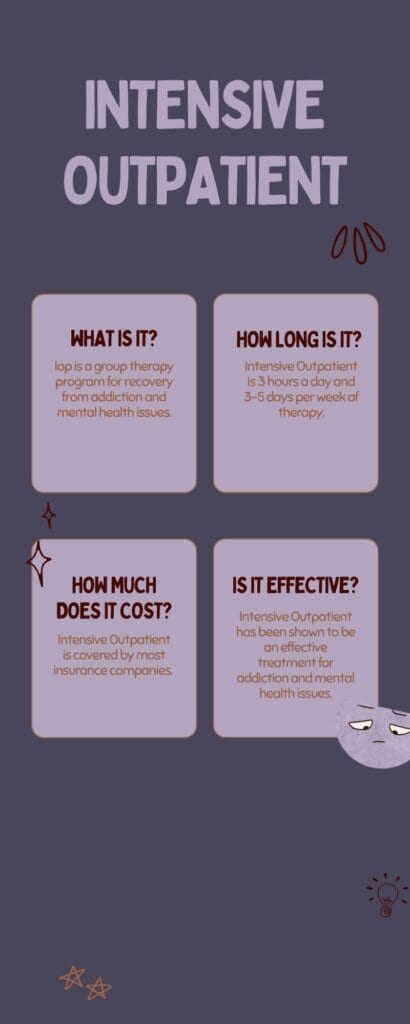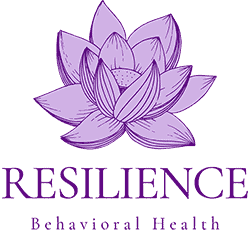Post-Treatment Support: Alumni Programs in Massachusetts IOPs
Completing intensive outpatient treatment (IOP) marks a significant milestone in the journey towards mental health recovery.
While conquering this initial hurdle is commendable, navigating the transition back to daily life can present its own set of challenges. Studies show that up to 50% of individuals with certain mental illnesses experience relapse within two years of treatment cessation, highlighting the crucial role of ongoing support during this critical period.
Fortunately, Massachusetts boasts a robust network of alumni programs specifically designed to bridge the gap between completion at mental health intensive outpatient Massachusetts and independent living. These programs, fostering a sense of community and equipping individuals with essential skills, can significantly improve the odds of long-term well-being.
Why "The Finish Line" Isn't the End: The Post-Treatment Challenge
Finishing mental health treatment is a big win, like climbing a rugged mountain. But even when you reach the top, the rocky path back down is still there.
Transitioning back to “normal” can be just as scary, riddled with unseen obstacles and hidden pitfalls. Why? Let’s explore two major roadblocks that make post-treatment support not just desirable, but crucial:
The Relapse Threat: Lack of Support
Studies show that relapse rates for various mental illnesses hover around 30-50%, painting a worrying picture of potential setbacks. In some cases, like depression, the numbers climb even higher, with research indicating a 66% relapse rate within two years of treatment cessation.
Why It Happens:
The reasons for relapse after treatment at mental health intensive outpatient Massachusetts are complex and varied, but common culprits include:
- Lack of ongoing support: Without consistent therapy and social connections, coping skills dwindle, and vulnerabilities resurface.
- Stress and triggers: Daily life throws unavoidable curveballs, and without a support system, navigating stressful situations or encountering personal triggers can be overwhelming, pushing individuals back into unhealthy coping mechanisms.
- Medication discontinuation: Abruptly stopping medication can lead to severe consequences, triggering withdrawal symptoms and exacerbating symptoms of the underlying condition.
The Loneliness Labyrinth: A Struggle for Connection and Understanding
48% of individuals with mental illness report feeling socially isolated, a statistic that tragically mirrors the stigma surrounding mental health. This isolation can fuel anxiety and depression, hindering progress and making support even more critical.
The Need for Shared Experiences:
Finding others who understand the nuances of your journey, can be an immense source of strength. Shared experiences create a sense of belonging, validation, and hope, offering invaluable encouragement and practical tips.
Speaking openly about mental health challenges remains a hurdle for many. Post-treatment programs at mental health intensive outpatient Massachusetts provide safe spaces for honest conversations, fostering acceptance and empowering individuals to advocate for themselves and others.

Beyond the Finish Line: A Toolbox for Continued Mental Wellness
Alumni support groups offer a safe and empowering space to connect with others who have walked a similar path and understand your unique challenges. Here, you can:
Share Experiences and Offer Mutual Support:
No judgment; just open ears and shared understanding. Imagine a conversation circle where vulnerability and strength intertwine. In alumni support groups, you can:
Confide Your Journey in its Entirety:
Whether it’s conquering a milestone, grappling with a setback, or simply navigating daily life, you’ll find empathetic ears and voices that resonate. Fear of judgment dissolves, replaced by understanding and shared experiences.
Seek and Offer Invaluable Advice:
Every member is a walking resource, equipped with a unique toolkit of coping mechanisms and strategies. Learn from each other’s successes and failures; discovering new ways to manage stress, identify triggers, and celebrate victories – big and small.
Learn From Each Other:
Each member brings their personal arsenal of coping skills and strategies, creating a dynamic hub of knowledge and practical solutions. At mental health intensive outpatient Massachusetts, you gain:
Exposure to Diverse Perspectives:
Different individuals respond to challenges in unique ways. Witnessing these varied approaches broadens your options, allowing you to discover what resonates most with you and expand your own repertoire of coping mechanisms.
Practical Tips for Navigating Triggers:
Sharing personal experiences with specific triggers opens a dialogue of practical solutions. Learn how others manage their anxieties, overcome setbacks, and find peace in challenging situations, equipping yourself with valuable tools for your own journey.
Combat Isolation and Building Social Bridges:
Reconnecting with the world can feel like climbing a social mountain after scaling the treatment peak. Alumni programs help you bridge the gap by:
Facilitating Social Events and Activities:
From picnics in the park to movie nights and community volunteering opportunities, these events provide a welcoming environment to build new connections and strengthen existing ones. You’ll rediscover the joy of social interaction and rebuild your support network outside the program.
Finding Meaningful Relationships:
Shared experiences create a powerful bond. As you connect with individuals in mental health intensive outpatient Massachusetts who understand your journey, you develop friendships built on empathy and mutual support, enriching your life with a sense of belonging and acceptance.
The Post-Treatment Landscape: Expanding Your Support System for Continued Well-being
Finishing treatment is a victory, but navigating the “after” can still feel overwhelming. What if you need additional support, beyond what the center offers? Don’t worry, you’re not alone! A vast network of resources awaits, ready to fill any gaps and ensure your overall well-being.
Think of it like expanding your support circle. Whether you need financial assistance, housing support, or specialized care, there are organizations ready to lend a hand. Let’s explore some key connections for mental health intensive outpatient Massachusetts:
- NAMI Massachusetts: This invaluable directory guides you to alumni programs tailored to your specific needs and location. It’s your one-stop shop for finding the perfect fit.
- Massachusetts Department of Mental Health: Their comprehensive list of mental health resources includes a dedicated section for alumni programs. Explore everything available and discover the support that empowers your journey.
- Resilience Behavioral Health: Adding to the options, they offer information and guidance on alumni programs within their network. Check out their website for details and potential connections.
Remember, reaching out for help is a sign of strength, not weakness. These resources are here to assist you in building a comprehensive support system, ensuring you have everything you need to thrive beyond treatment.
Don’t hesitate to use them and keep climbing towards your personal peaks of well-being.
Beyond the Finish Line: Find Your Anchor at Resilience Behavioral Health
Post-treatment doesn’t have to feel as overwhelming as it does. At Resilience Behavioral Health, we understand the challenges you face and are here to offer the support you need to thrive.
Why Resilience?
Our comprehensive alumni program goes beyond traditional groups, providing:
- Personalized therapy sessions: Tailor-made support to address your specific needs and goals.
- Specialized support groups: Connect with others who share your journey in dedicated groups for anxiety, depression, trauma, and more.
- Online community forum: Get ongoing support and share experiences 24/7 in our vibrant online community.
- Stress-management and relapse prevention workshops: Learn practical tools to build resilience and confidently navigate triggers.
Don’t wait to build your post-treatment safety net. Contact us today at 888.401.1179 to learn more about the programs and services we offer or to schedule a consultation with our team to learn how we can help you reach your full potential.


